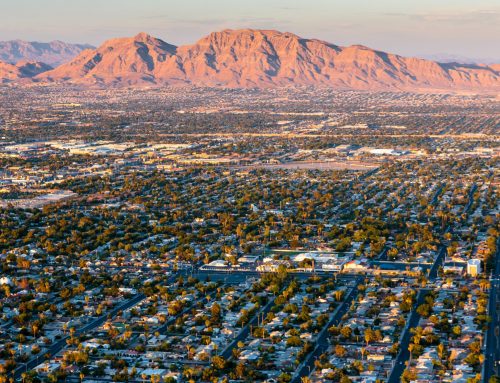Why You Should Get Around to Drawing Up a Will
No one likes to think about dying — and that is probably one reason most Americans lack wills.
Fewer than half of American adults (42 percent) have a will, according to a survey published this week on Caring.com, a website that offers resources for older Americans and their caregivers.
The most common excuse given for not having a will (or an alternative legal tool called a living trust) was, “I just haven’t gotten around to it,” cited by nearly half of survey participants who lacked one.
“Most people run from, and don’t want to think about, their own death,” said Arthur Kovacs, a clinical psychologist in Santa Monica, Calif.
People are more likely, though, to have important estate planning documents as they age. Just one in five millennials — adults 18 to 36 — has a will, the survey found. But 81 percent of people 72 and older have one.
The survey, by Princeton Survey Research Associates International, questioned more than 1,000 adults by telephone in January. The margin of sampling error was plus or minus four percentage points. (Caring.com makes money from advertising and from referrals to senior care facilities.)
Having a will is important to ensure that your money and belongings are distributed according to your wishes after you die, said Sally Hurme, an elder-law attorney affiliated with AARP. “It determines how anything you own is going to be distributed to people you want to receive it, after your death,” she said.
If you die without a will, your estate will be settled in accordance with state law. Details vary by state, but assets typically are distributed using a hierarchy of survivors. Assets go to first to a spouse, then to children, then your siblings, and so on.
People often fail to understand, however, that certain accounts take precedence over a will, Ms. Hurme said. If you jointly own a home or a bank account, for instance, the house, and the funds in the account, will go to the joint holder — even if your will directs otherwise. Similarly, retirement accounts and life insurance policies are distributed to the beneficiaries you designate, so it is important to keep them up-to-date.
Health care powers of attorney, which let a trusted person make medical decisions for you when you are unable, are more common than wills, the survey found. More than half of adults have granted someone legal authority to make treatment decisions.
Older people are more likely to have a health care power of attorney, sometimes called a health care proxy, the survey found. But Katie Roper, vice president of Caring.com, advises that everyone 18 or older — not just elderly people — should have one. If you have a children 18 or older away at college, she said, making sure they have such documents can help make sure you are able to discuss their treatment, should an emergency arise.
Ms. Roper said she was especially surprised at the survey’s finding that just 36 percent of adults with minor children have a will. An important function of a will, she said, is for parents to name a guardian to care for their children, in the event of their death.
Here are some questions and answers about wills:
Must I have a lawyer draw up my will?
Not necessarily. Creating a will with a do-it-yourself software program may be acceptable in some cases, particularly if you are a single person with a modest bank account or half of a young couple with no children. “It’s perhaps better to have one done by a program than not at all,” said Gerard G. Brew, a lawyer specializing in trust and estate matters with McCarter & English in Newark.
But if you have significant financial assets or a complex family situation, like a blended family or a child with special needs — it is best to seek expert advice. Any cost savings from skipping legal advice upfront, Mr. Brew said, will quickly evaporate if an estate matter is contested in court. “I urge caution,” he said.
The price of a will varies by location and by the complexity of your situation. Nationally, a couple most likely will pay an average of $1,200 to $5,000 for an estate planning package that includes wills and related documents, Mr. Brew said.
It doesn’t hurt to get prices from different firms, he said — just be sure the quote includes the same services. To help rein in costs, Mr. Brew advised, prepare for the first meeting with your lawyer by creating detailed lists of assets and accounts, so your time is spent as efficiently as possible.
What do-it-yourself options are available?
Online options include LegalZoom, which offers wills for as low as $69. Quicken Willmaker, created by Nolo, can be downloaded or purchased as a disc. Prices range from about $31 to $55, depending on the version.
The New York Times tested several D.I.Y. programs several years ago, and concluded that legal help was warranted for all but the simplest estates. Consumer Reports reached a similar conclusion.
Ms. Roper with Caring.com suggested that if you don’t have a will, you could create one yourself to get started, and then have it reviewed by a lawyer to make sure it covers all the important bases.
Once I have a will drafted, where should I keep it?
If a professional prepared your will, Mr. Brew recommends keeping the original document at the lawyer’s office.
If you created the will yourself, opinions differ as to the best option. Ms. Hurme advises against keeping your will in a bank safe deposit box, as it may be difficult for others to gain access to it after you die. She suggests keeping it at home — perhaps in a fireproof safe.
Mr. Brew, however, prefers the safe deposit box route. Most states have a procedure to allow a named executor to retrieve a will, he said. If you keep the original in your possession and it cannot be found upon your death, he warned, courts may presume that you revoked it.
Write Us
Ask a Us a Question or Contact Us Today For Your Estate and Trust Planning Needs




